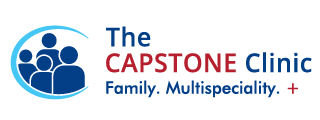Roshan – a 25 year old working professional had a hectic work schedule. During one of his morning meetings, he suddenly complained of chest pain, and collapsed on the floor. His colleagues immediately rushed him to the hospital. The results showed that Roshan had experienced a heart attack. It was literally a bolt out of the blue. Stress and tension at work were mentioned as potential factors contributing to the heart attack.
Is heart disease increasing among young adults ? How does one assess if one is at risk?
The incidence of heart diseases in India is increasing and Indians are topping the global list of countries at higher cardio risk. While cardiovascular diseases are most commonly found in middle and old aged people, it is alarming to see the numbers increasing in recent times, among young adults, both men and women.
How common are premature heart problems?
Until about ten years ago, our medical facilities rarely saw adults in the age group of 21-30 years in the emergency ward due to heart attacks. According to statistics, 25% of heart attacks in Indians are under 40 years of age, where people living in urban areas are more prone to heart diseases than those living in rural areas.
What are the risk factors associated with premature heart diseases?

The most common one is due to genetics, known as familial hypercholesterolemia (FH). Smoking, excessive drinking and unhealthy food consumption are other risk factors, which lead to health problems such as obesity and high blood sugars, high cholesterol and high blood pressure. This ultimately leads to heart diseases.
As seen in Roshan’s case, stress and tension are leading causes for such health and heart issues in young adults. These are byproducts of hec
tic and unbalanced lifestyles. Lack of knowledge about the risks of leading an unhealthy
lifestyle and the deep impact of smoking, eating junk food, sedentary lifestyles and unhealthy habits also contribute to more people entering the risk zone with reference to heart disease.
How can one prevent the risks of heart diseases?
 It is essential to consciously adopt healthy habits through diet and exercise. Exercising on a daily basis, getting quality sleep, avoiding smoking and excessive consumption of alcohol, eating healthy fats and a balanced diet will go a long way in reducing heart problems. Learning to manage your time and seeking daily routines that combat stress levels are important. Lastly, visiting the doctor for regular medical check-ups will help monitor your heart health and identify ongoing course corrections as needed.
It is essential to consciously adopt healthy habits through diet and exercise. Exercising on a daily basis, getting quality sleep, avoiding smoking and excessive consumption of alcohol, eating healthy fats and a balanced diet will go a long way in reducing heart problems. Learning to manage your time and seeking daily routines that combat stress levels are important. Lastly, visiting the doctor for regular medical check-ups will help monitor your heart health and identify ongoing course corrections as needed.
At The Capstone Clinic, our team of doctors provide comprehensive cardiac care for you and your family. We take care to assimilate family history and genetic related risk factors. We encourage patients and their families to consider holistic improvements to lifestyle that are known to have the best long term outcomes for health. And ofcourse, we have leading medical experts to guide on medical interventions, treatment or medication, as may be required for each individual.
We take heart from the uptrend in fitness consciousness and awareness about nutrition and hope more youngsters will make informed choices about their health, giving themselves a better chance of good health.



